15 October 2020, 23:56
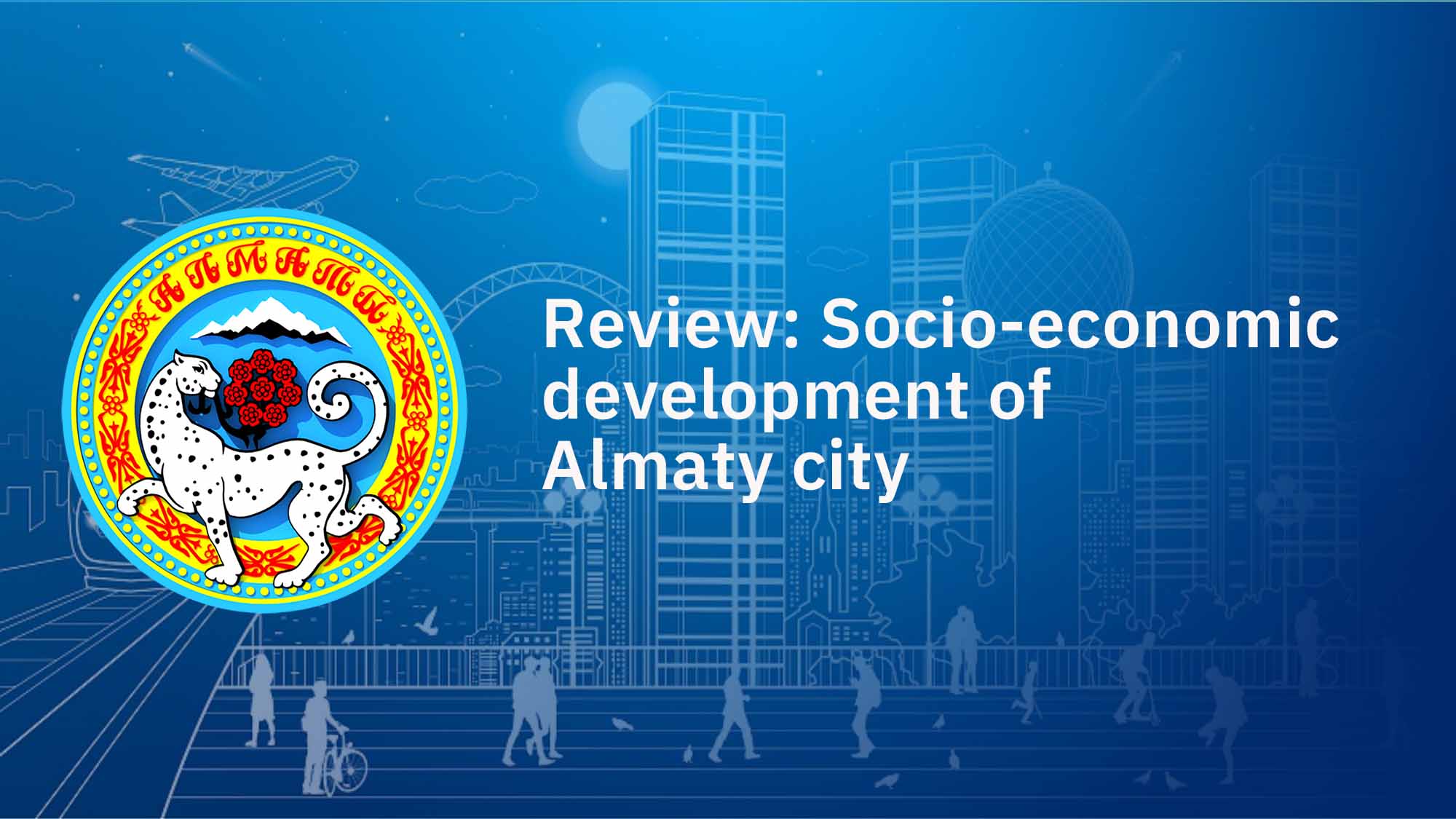
In the Address of the Head of State "Kazakhstan in a New Reality: Time for Action,’’ the emphasis in the work of akimats is made on solving problems of accelerating the digitalization of the civil service, optimization of costs, as well as increased preparedness for epidemiological crises and other emergencies. Read how these instructions are being implemented in the southern capital of the republic — the city of Almaty, as well as the results of the socio-economic development of the city in January-September 2020 in the material.
The results of the socio-economic development of Almaty for 9 months of this year show multidirectional dynamics. Thus, the short-term economic indicator, including the dynamics of the development of 6 key sectors (industry, agriculture, construction, trade, transport, communications), amounted to 89.7%, which is 0.5% higher than the level in January-August this year.

This dynamics is due to the decline in January-September of 2020 compared to the last year's period of trade, transport and logistics.
At the same time (in January-September) communication services increased by 8%, construction — by 6.9%, industry — by 3.2%.
The state budget received 1,526 billion tenge of taxes, which is 0.4% more than the corresponding period last year. Inflation in September 2020 was 104.8%. Investment growth was ensured by 12.5%.
Indeed, business activity is still low. So, in August, the business activity index in Almaty was 46.7%, while the level of high activity is considered when the indicator exceeds 50%.
To increase business activity, systemic measures are being taken through the proactive implementation of state and regional programs.
Within the framework of the Business Roadmap in 2020, 9.3 billion tenge is provided with the preservation of more than 5 thousand jobs. Within the framework of the Economy of Simple Things program, 56 projects were financed and approved for the amount of 95.2 billion tenge. Currently, second-tier banks are considering 12 projects worth 28.3 billion tenge, another 27 projects worth 37.8 billion tenge are at the development stage.
This year, we have significantly increased the volume of concessional lending to businesses within the framework of state programs due to the built effective system of interaction with STBs. By the end of the year, we set the task of bringing this figure to 327 billion tenge and maintaining the share of small and medium-sized businesses in the GRP of Almaty at the achieved level — 40%.
Within the framework of the regional program, Almaty Business-2025, measures are being implemented to create small industrial parks. Thus, 4 industrial parks have been opened on the basis of idle industrial premises since the beginning of the year.
More than 1,100 entrepreneurs exempted from paying rent
Almaty, a city of business and private capital, occupies 20% of the country's GDP. At the same time, 6 out of 10 Almaty residents are employed in the field of small and medium-sized businesses.
In connection with the pandemic announced around the world, restrictive measures were taken in the country, including the city of Almaty. These measures influenced the decline in certain industries, such as trade, services, transport and others.
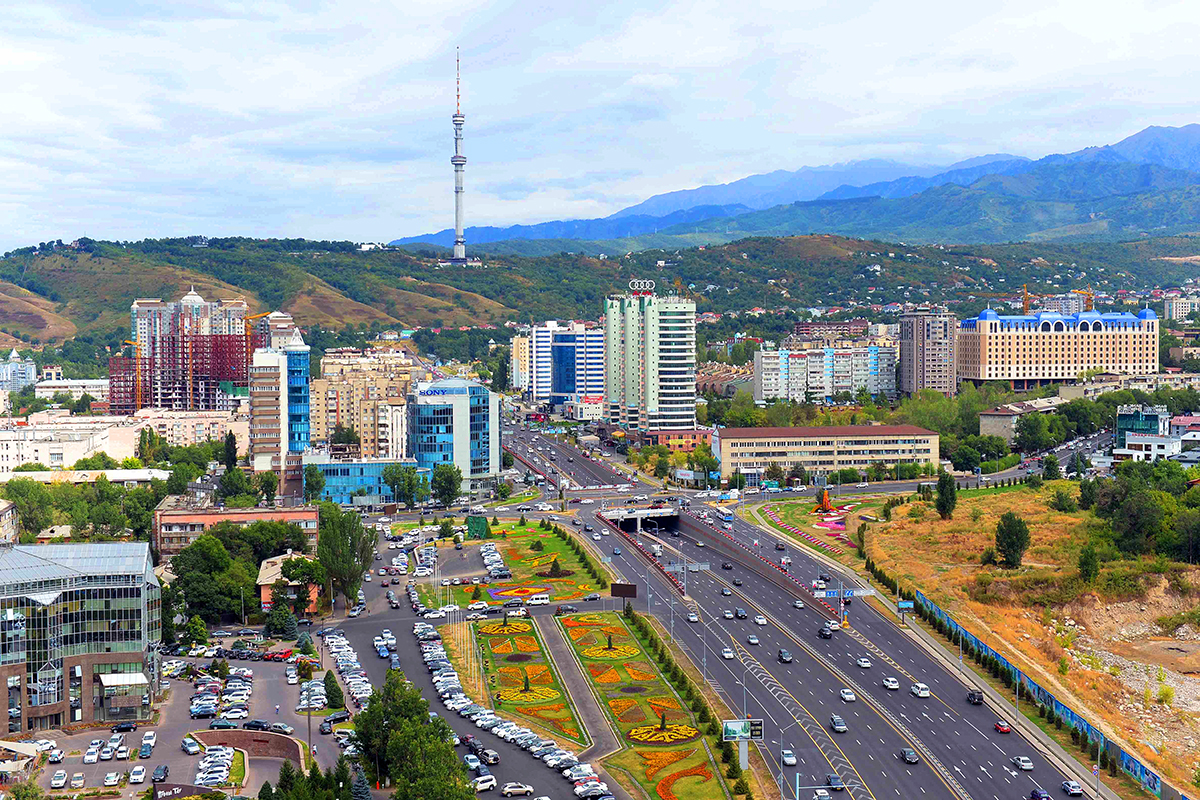
At the same time, there is a significant increase in indicators in the field of e-commerce, online delivery, in the work of private medical organizations, as well as in the field of communications and communications.
Despite the economic situation and restrictive measures during the quarantine period, the number of operating small and medium-sized businesses as of Sep. 1, 2020 is 195,212, which is 2.6% more than in 2019. The share of the city of Almaty in terms of operating SMEs is 14.6% of the Republic of Kazakhstan and occupies a leading position.
Analysis of the number of employed in SMEs characterizes the importance of entrepreneurship in solving the problem of employment. The proportion of the population of Almaty city actively employed in SMEs as of April 1, 2020, amounted to 62% of the total number of employed or 596.2 thousand people.
Also, the output of operating SMEs is growing every year. In the first quarter of this year, it grew by 13.2% and amounted to 1,877.9 billion tenge, the share of SMEs in the city's GRP was 42.4%.
Akimat is taking all necessary anti-crisis measures to restore the economy. So, within the framework of business support for the implementation of state and regional programs, the amount of financing has been increased 3 times, which is about 36 billion tenge.
For reference:
In addition to support within the framework of state programs, in pursuance of the President's Address, over 1,100 entrepreneurs in the amount of 376 million tenge were exempted from paying rent payments for state facilities.
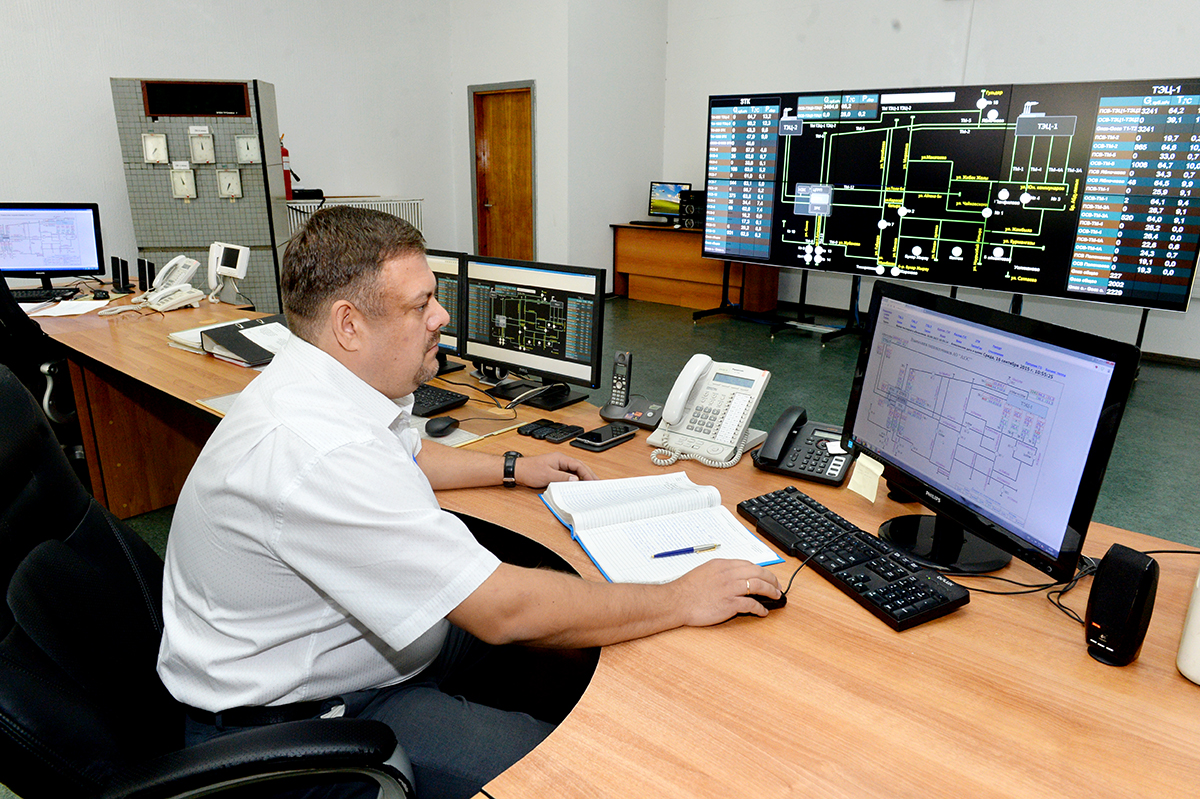
As part of the announced easing, about 75 thousand entrepreneurs of the city received tax deferrals in the amount of over 23 billion tenge.
Deferred loans were granted for 360 thousand loans in the amount of 127 billion tenge.
During the lockdown, due to the closure of large trade and service facilities, the issue of exempting businesses from rent was also considered. Thus, the owners of over 200 objects (shopping and entertainment centers, catering, markets) have released about 20 thousand entrepreneurs from lease for a period of up to 3 months.
In addition, to date, within the framework of non-financial support, the city akimat has developed and launched a free educational platform for teaching the basics of business. To date, about 40 thousand participants are registered on the platform.
The COVID-19 pandemic has negatively affected the economic situation in Almaty. Many small and medium-sized businesses, trade, services and tourism have been hit by the coronavirus crisis. In general, the GRP volume of Almaty in the first half of this year decreased by 5.5%.
On behalf of the Elbasy and the Head of State, the government has taken unprecedented measures to stimulate tax, expand lending, develop infrastructure, support production, entrepreneurship and maintain employment.
At the same time, amid the pandemic, there has been a large-scale transition of consumption to the online format. Here Almaty occupies a leading position. Also, remote forms of education and work received a new impetus, special attention was paid to ensuring food, epidemiological security, the Stabilization Fund of Medicines was promptly created. In the context of a pandemic, industries, communications, and construction show stable work.
In January-August sales of pharmaceuticals and medicines in Almaty increased
The city is traditionally the center of the country's wholesale trade. The akimat of Almaty also told how this sector has changed in connection with the current situation with the pandemic.
So, in January-August, the volume of wholesale trade amounted to 6,042,198 billion tenge, the share in Kazakhstan — 42.9%, of which the volume of sales of food products amounted to 1,397,747 billion tenge, non-food products — 4,644,451 billion tenge.
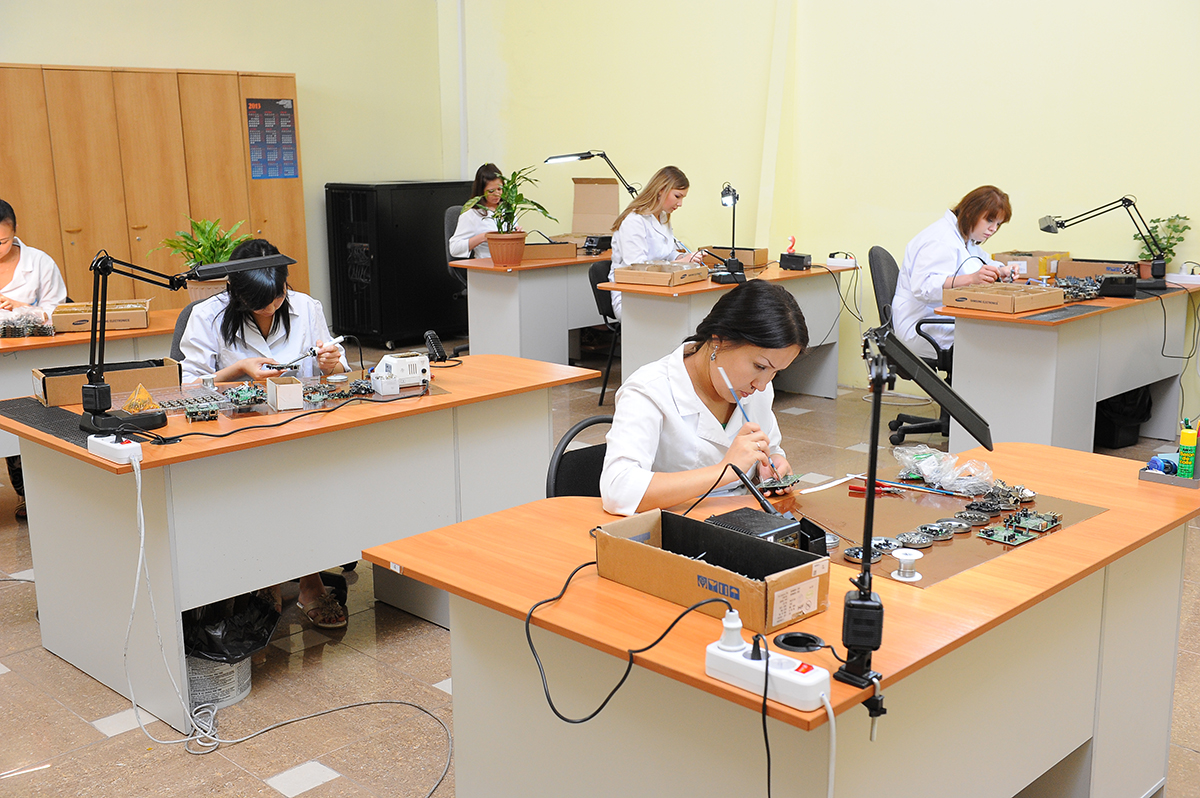
A decrease in the realization of the volume of sales in January-August for food products is noted:
A decrease in sales in January-August for non-food products is noted:
An increase in sales of sales in January-August for non-food products is noted:
At the same time, in August 2020, compared with July, the wholesale turnover increased by 11.8%.
There is a decline in growth rates for non-food products by 7.1%.
Preparing for new wave of COVID-19: Almaty introduced new mechanism for hospitalizing patients
Also, the Akimat of Almaty told how the city is preparing for a possible new wave of coronavirus.
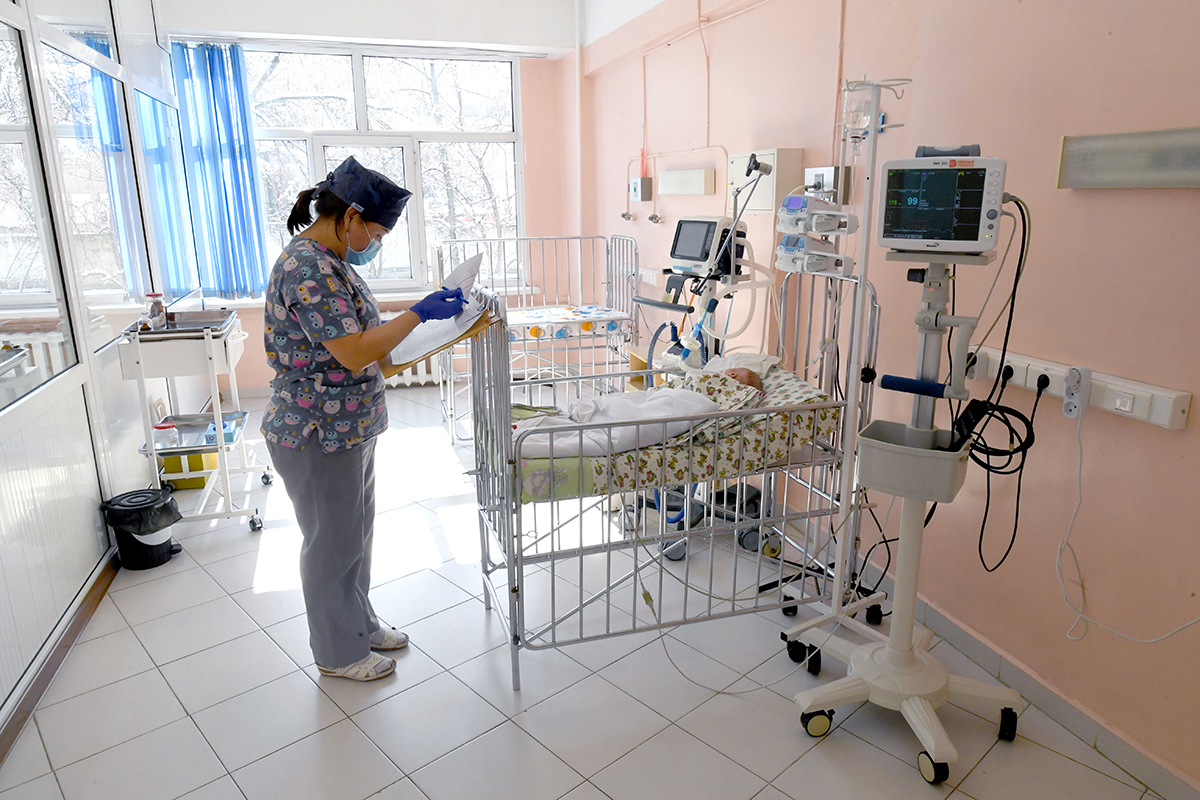
In general, the situation in the city of Almaty is assessed as stable and is under the full control of the city headquarters for combating COVID-19.
Thus, the city has adopted a number of decisive measures designed to improve the efficiency of the health care system. At the same time, the emphasis was placed on strengthening emergency and primary health care services. In addition, the bed capacity of covid hospitals is gradually increasing.
The city has prepared 32 covid hospitals with a bed capacity of 7,200 beds.
Over the past two months, four new clinics have been prepared in the city: in Turksib district with a bed capacity of 500 beds, in Alatau district a new modular hospital with 300 beds. There are also two private clinics with a bed capacity of 215 beds. Thus, the number of infectious diseases beds has almost doubled over the past three months.
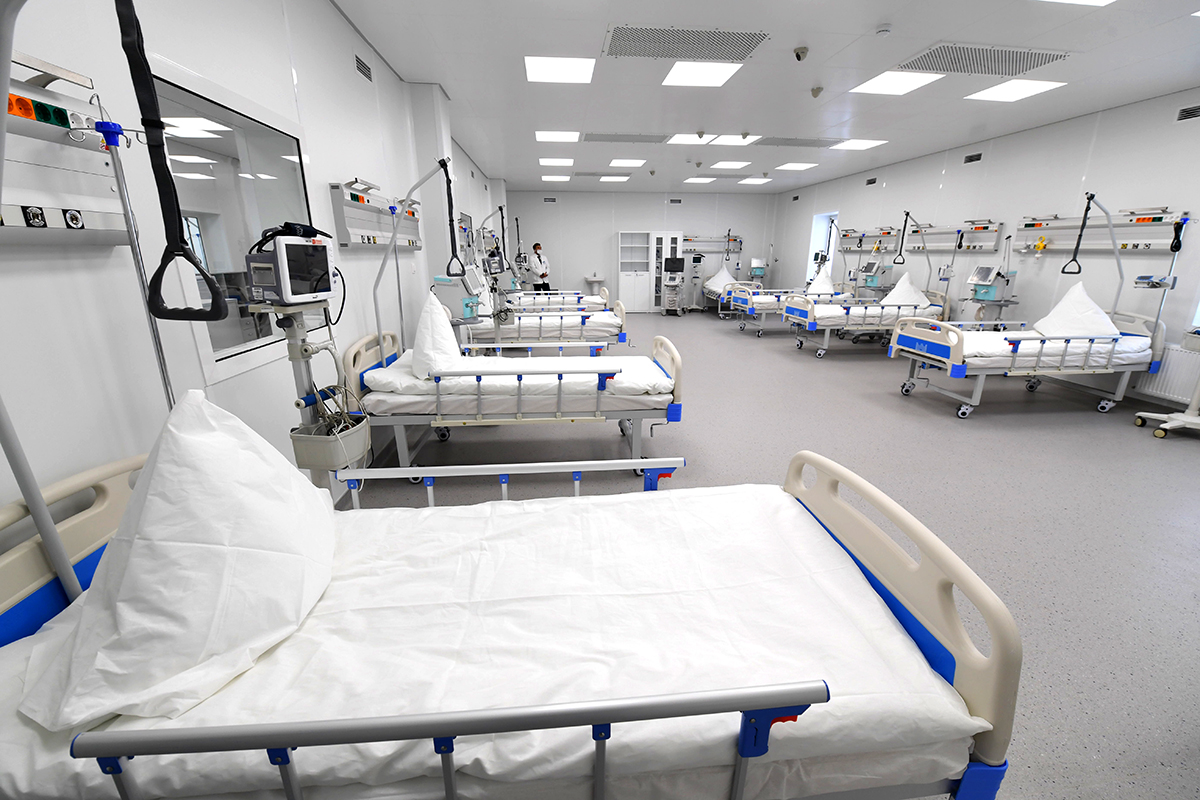
To stabilize the situation, a new model for managing the health care system in a pandemic has been developed, a set of systemic measures has been adopted, namely:
1. The material and technical base has been strengthened. More than 11 thousand units of medical equipment were purchased. It is important to note that the resuscitation and intensive care units are fully equipped in all infectious diseases hospitals in the city. Diagnostic departments and laboratories are staffed. We have done a lot in this direction and the material and technical base is now ready for new challenges and a possible new wave of COVID-19.
2. The dispatching service in the city ambulance service has been strengthened, the number of cars has been increased. 35 vehicles have already been received, 100 vehicles will be received by the end of November. There is also a modern car disinfection system, which has been used almost from the very beginning of our fight against the epidemic.
3. The algorithm for providing emergency medical care to patients with COVID-19, ARVI, and community-acquired pneumonia has been improved. Ambulance is the only hospitalization mechanism for this category of patients. Self-referral hospitalization is prohibited. (For reference: When servicing the exit, the ambulance team at home assesses the severity of the patient, according to a specially developed checklist and, depending on the patient's condition, then takes him to hospital. special CT centers have been identified in the city, where all safety measures are provided (separation into clean and dirty streams). Thus, the patient, entering the hospital, already has the result of the CT scan in his hands, this allows him to start therapy immediately upon admission. In the emergency room, a PCR test is taken (all this is provided free of charge, within the framework of the guaranteed volume of medical care).
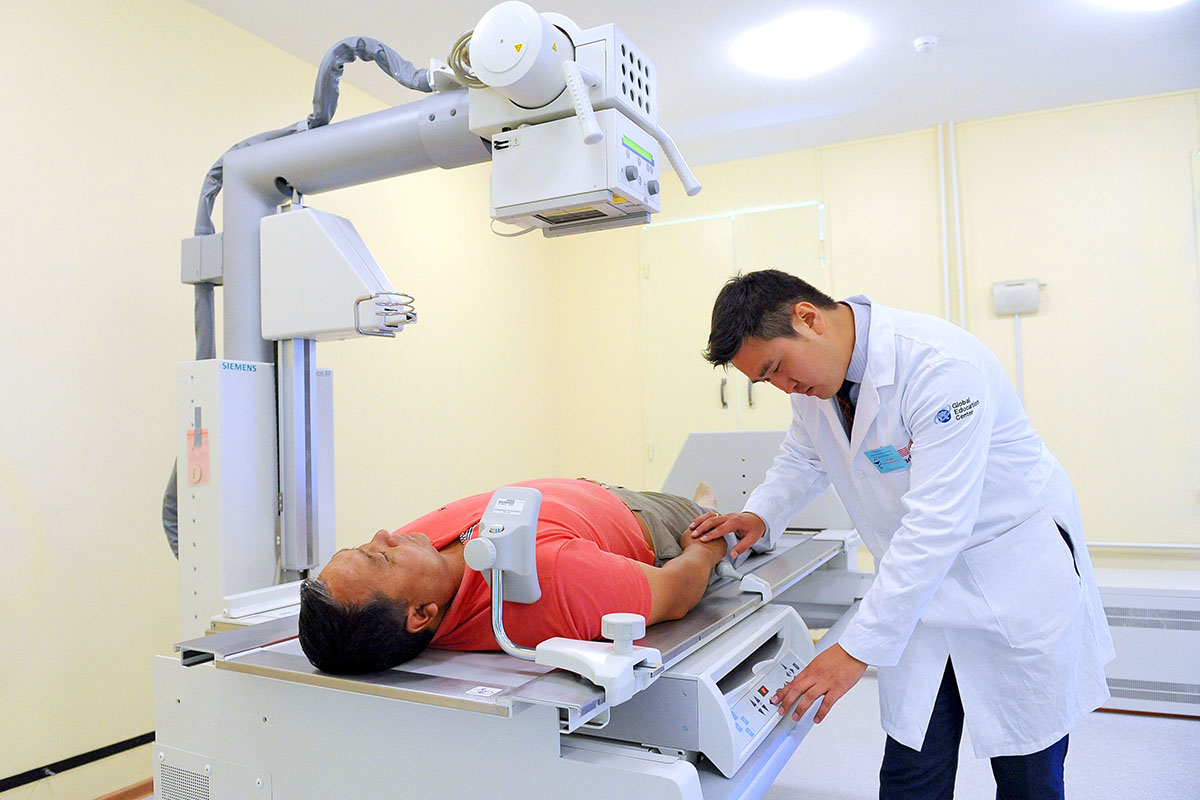
An important aspect is the checklists used to assess the severity. If the situation is favorable, there is a sufficient number of free beds, the threshold level for hospitalization is maximally reduced. If indicated, almost all patients are hospitalized — with a mild degree from a risk group, moderate and severe. With the worsening of the situation, a high load of hospitals, the threshold level for hospitalization rises and only moderate and severe hospitalizations are hospitalized. Accordingly, the ambulance transfers the asset for non-hospitalized patients to PHC and they are monitored by mobile teams of polyclinics. This approach minimizes the movement of patients in the city, accordingly minimizes the spread of infection in the community and, most importantly, allows you to regulate the level of occupancy of hospitals, avoiding overload and collapse of the healthcare system.
4. In order to improve the quality of medical care, the principle of dividing all hospitals according to the level of equipment and personnel potential has been introduced — separation. Assessing the epidemiological situation, the city of Almaty was the first in the country to move away from the principle of dividing clinics into infectious and provisional hospitals. This made it possible to more efficiently manage patient flows. The hospitals are divided into three echelons. The patient, depending on the severity, is hospitalized in one of the city's hospitals.
The first echelon is for extremely difficult, severe patients and with moderate severity from the risk group (+60 years old, people with chronic diseases). These hospitals are provided with all the necessary equipment, medical organizations have a strong personnel potential, they have everything necessary to solve urgent problems. Today there are 9 clinics with a bed capacity of 2,985 beds.
The second echelon is for patients with moderate severity. These are 15 repurposed clinics, the bed capacity of which is designed for 1,850 beds.
And the third echelon — observators — is used for follow-up care of patients. These include 8 organizations with a bed capacity of 2,391 beds, of which 1,000 beds are in the complex organized on the basis of the Halyk Arena. At the same time, it is important to note that the clinics of the second and third echelon are under the constant supervision of a working group created from among the leading specialists in infectious diseases and pulmonologists.
This approach allows you to clearly manage patient flows. The patient receives adequate and timely therapy. The transfer of "stable" patients to observators (third echelon) allows to accelerate the turnover of beds, thus increasing the availability of high-tech clinics of the first and second echelon.
5. To improve the efficiency of treatment of resuscitation patients, an anesthesiology and resuscitation center has been created in the city, which in turn consists of an expert department and a mobile team of anesthesiologists and resuscitators.
The expert department includes leading specialists from the number of resuscitation doctors, anesthesiologists, department employees, including candidates and doctors of science who are retired. Mobile teams consist of a number of resuscitation specialists who round the clock make rounds in intensive care units, advise patients on the spot and, if necessary, transmit patient data to the expert department via telemedicine. From the first days of the work of this Center, a positive result has been noted. Already in the first week of work, the number of severe and extremely difficult patients has almost halved. Statistical processing of all data on severe and extremely difficult patients before and after work was carried out, thereby introducing the Center for Anesthesiology and Reanimatology into the practice of preventing potential 420 deaths. Work in this direction continues.
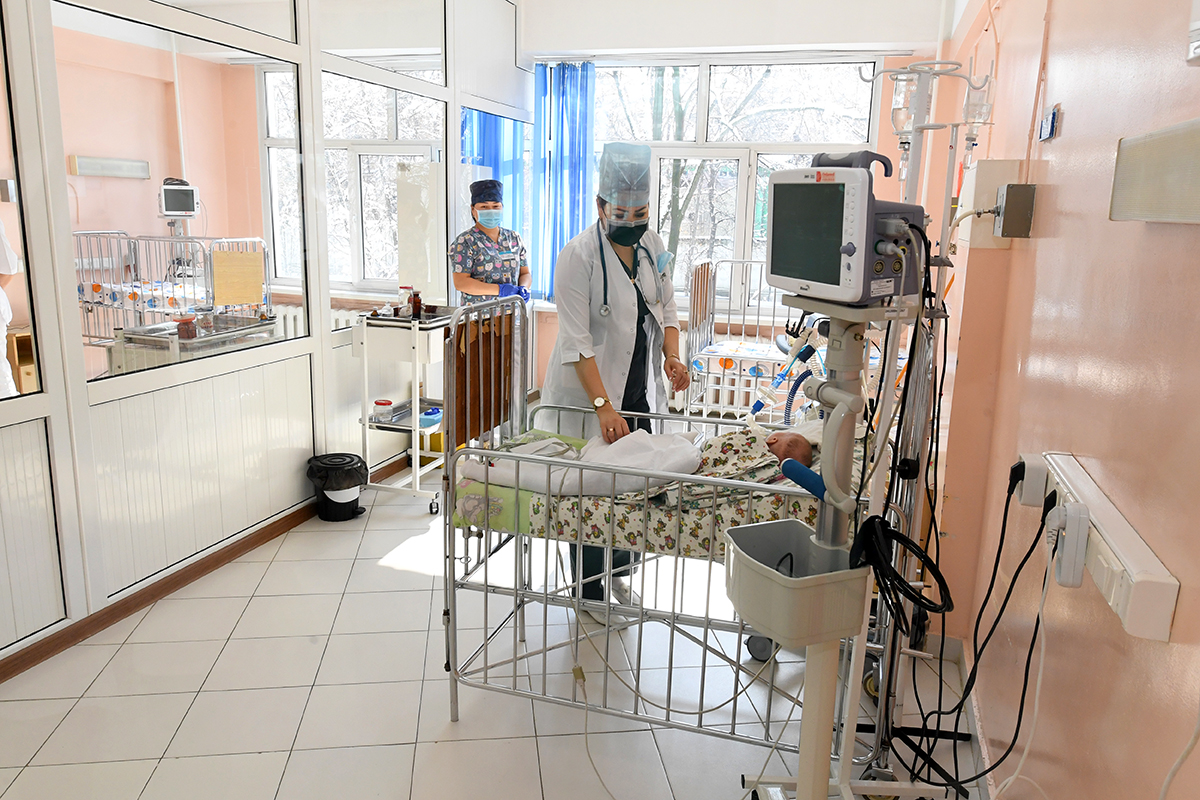
6. At the outpatient level, 298 mobile teams were formed to work with patients with suspected coronavirus infection, which included 925 medical workers. The number of mobile brigades has been increased 5 times since the beginning of the pandemic. This category of health workers is involved exclusively in the front line. These are the very specialists who will work on the road with patients with suspected covid. It is also important to note that all polyclinics in the city have zoning passports. All the requirements of the sanitary and epidemiological service for routing the patient within the medical organization are provided. To strengthen the work at the PHC level, a Telemedicine Center has been created, and the Monitoring Center with patients from risk groups and the Center for Mental Health of the Population are successfully operating.
7. The monitoring center for patients from risk groups is a joint project of the Akimat and KazNMU named after Asfendiyarov. This Center was established on the basis of the Scientific Research Institute of Cardiology and Internal Medicine, it operates around the clock. Leading specialized specialists — cardiologists, pulmonologists, allergists, endocrinologists, etc. on an outpatient basis provide remote counseling to moderate patients and patients at risk. This allows you to track and monitor the health of patients, especially the elderly and those with concomitant diseases. During the work of this Center, about 2 thousand consultations were carried out. The main task of the center is to monitor patients at risk (people over 60 years old and people with chronic diseases) on an outpatient basis. The staff of the Center, together with district doctors and mobile PHC teams, provide consultations and, if necessary, adjust treatment or recommend hospitalization of patients. This approach improves the quality of treatment at the outpatient level and minimizes the number of hospitalizations.
8. The Telemedicine Center of the city of Almaty was created. The task of this Center is to advise and monitor patients with probable and confirmed cases of COVID-19. In fact, this is a unified service for the treatment of COVID-19 with the possibility of receiving a video consultation from a doctor. For this, software is being developed that will be integrated with MIS. The doctor of the Telemedicine Center conducts a video consultation, assesses the patient's condition, prescribes treatment and makes changes to the patient's electronic record. It is also a single electronic database of all COVID-19 cases. Also, one of the important functions of this Center is to monitor compliance by patients with the quarantine regime.
9. The city has adopted a city program to provide clinics with medical oxygen. As practice has shown, one of the key methods of treating patients with CVI is oxygen support. In this regard, the akimat made a decision to equip covid clinics with gas-oxygen stations. In 9 hospitals, medical gas facilities have already been supplied to each bed. In total, it is planned to provide 10 more hospitals with medical gases.
10. Ensuring infectious safety and preservation of the city ecology. This is a citywide program that allows to systematically resolve the issue of disposal of medical waste and disinfection of sewage. Work is underway to install medical waste disposal stations in 13 clinics. In accordance with modern requirements for the management of epidemiologically hazardous medical waste, departments for the disinfection of medical waste have been organized on the basis of the clinic. It should be noted that the installed recycling stations allow us to convert class B and C epidemiologically hazardous medical waste into class A non-hazardous waste (household waste). Essentially, honey waste is sterilized at 132 degrees Celsius. The uniqueness of the implemented sterilization system lies in its safety for the staff and visitors of the clinic and for the environment. This technology will also allow clinics to decontaminate the personal belongings of incoming infected patients or the clothing of clinic staff who have been in contact with infected patients at a temperature of 70 or 90 degrees.
Also, work was carried out on the construction of a system for disinfection of sewage in covid clinics. This program allows you to exclude the spread of a particularly dangerous infection through sewage, thereby ensuring the environmental safety of the city.
11. A personnel reserve has been formed. In this matter, the akimat revised all approaches. The akimat was faced with the task of mobilizing the medical staff in a timely manner and rationally distributing them to infectious hospitals. It is important to understand that in the race to increase the number of beds, it is not only their material and technical equipment. The main focus is on the provision of qualified personnel.
To mobilize medical personnel, firstly, an analysis was carried out of the current situation in terms of human resources, staffing of all medical organizations in Almaty, including subordinate, state, private and republican medical organizations. On a daily basis, monitoring and analysis of the staffing of all medical organizations in Almaty, regardless of their form of ownership, is carried out.
In total, there are 74 organizations subordinate to the Department of Public Health of the city, 20 republican organizations and 93 private medical institutions in Almaty. More than 38 thousand employees work in these organizations. As of Aug. 1, 2020, 27 healthcare organizations were involved in the treatment of COVID-19, and about 6,200 beds were deployed. At that time, more than 4 thousand employees worked in infectious diseases hospitals.
To date, due to the stabilization of the epidemiological situation, multidisciplinary clinics have returned to their normal operation. There are no more than 100 patients in infectious diseases clinics with coronavirus infection, and therefore, about 400 doctors, nurses and a junior medical officer are currently working with covid patients.
More than 5,500 medical personnel are in reserve in case of a new possible wave. Also, a reserve has been formed from the number of teachers, residents and interns of medical universities, there are about 450 of them.
The staffing table for new infectious diseases clinics is being calculated. For example, for the operation of a newly opened infectious diseases hospital with 500 beds on the basis of the Center for the provision of special social services, according to the staffing table, 587 staff units are required, today the staffing rate is 100%. More than 700 medical personnel have been recruited to work in the clinic at the Halyk Arena. The second new pre-fabricated modular hospital with 300 beds requires about 280 medical personnel. To date, a staffing table is being formed for new hospitals and work is underway to select personnel from the reserve.
Also, work is constantly being carried out to find personnel, the population is being informed and applications are collected, first of all, medical workers from private medical institutions, graduates of colleges and universities are involved. In general, in Almaty, the algorithm for hiring and selecting medical personnel has been completely revised.
12. The Stabilization Fund of Medicines was created. At the moment, there is a necessary supply of medicines and PPE. We regularly work with the United Distributor SK-Pharmacy and key suppliers of medicines. With the support of the city akim, a Stabilization Fund was created, for which 10 billion tenge was allocated from the local. 5 billion tenge were allocated for the provision of drugs at the level of private pharmacies, this made it possible to remove the excitement in private pharmacies and another 5 billion were allocated to form the necessary stock of drugs and PPE at the level of clinics and hospitals. Thus, the issue of drug supply is under constant control and the city is ready for various scenarios of the epidemic.
New reserve infectious diseases hospital at Halyk Arena
The complex has been reequipped to treat patients with coronavirus. The main advantage of the hospital is the ability to simultaneously accommodate 1,000 reserve beds in case of a high incidence of COVID-19 in Almaty.
There is also a full-fledged intensive care unit with 12 beds with access to medical gases and 48 intensive care beds. The complex includes 8 medical departments and 59 duty medical posts. The hospital at the Halyk Arena is fully equipped with new modern medical equipment.
Ten new industrial enterprises to be launched in Almaty by the end of 2020
In 9 months of 2020, the volume of industrial production amounted to 712.3 billion tenge, with an increase of 3.2%.
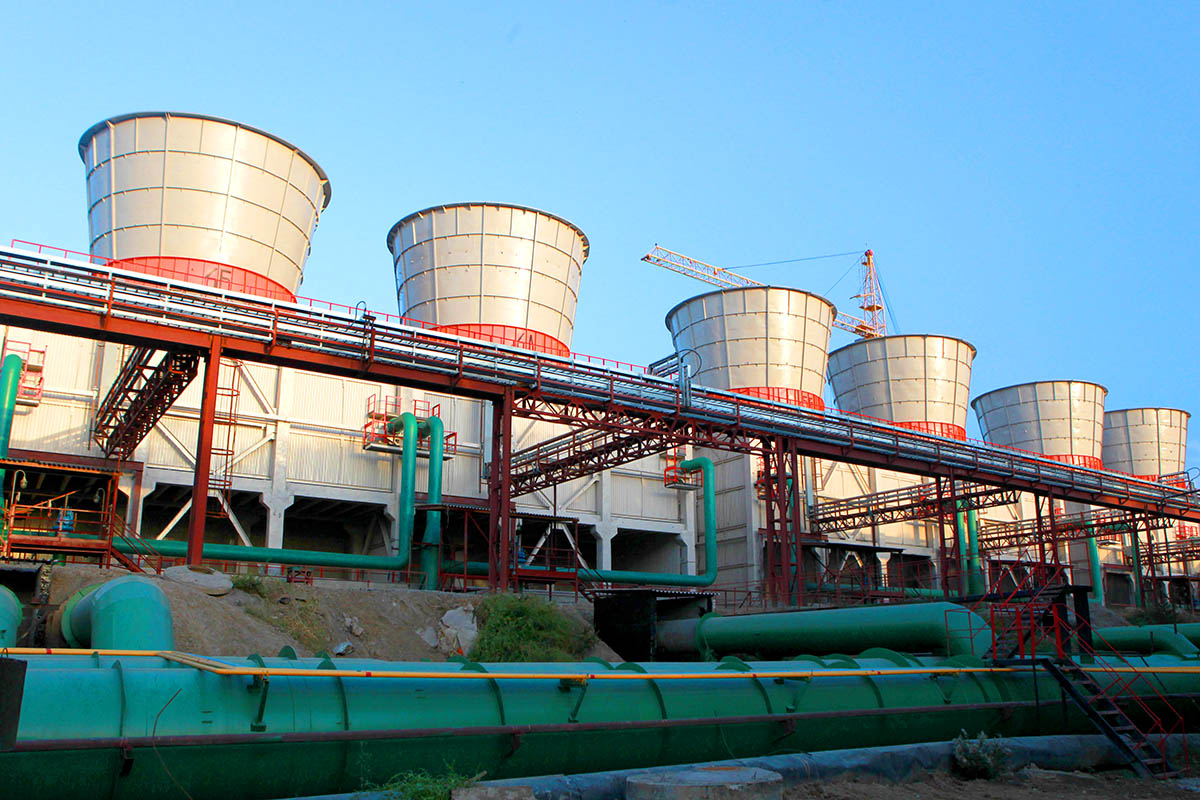
The increase in industrial production was influenced by the manufacturing industry, where the IFO amounted to 103.1%. This year, 3 plants have been launched and 10 new enterprises are planned to be launched by the end of the year, which will provide an increase of about 100 million tenge.
One of these plants was built by Astana Motors in the industrial zone of the city of Almaty. The Hyundai car assembly plant was built in accordance with modern technologies of the global automotive industry and the requirements of environmental standards. The design capacity of the enterprise at the first stage will be 30 thousand units per year, at the second stage — up to 45 thousand units per year. The total investment exceeds 28 billion tenge. More than 1,000 new jobs have been created, taking into account related industries.
The project was implemented with the support of the Ministry of Industry and Infrastructural Development of the Republic of Kazakhstan, the Akimat of Almaty, JSC Development Bank of Kazakhstan and JSC Industrial Development Fund. In the future, it is planned to open a plant for the production of auto components, which will provide more than 51% of localization and export to the CIS countries.
More than 1,500 enterprises are engaged in industrial production in the city. The industry employs 81,708 people, in the manufacturing industry — 61,848 people.
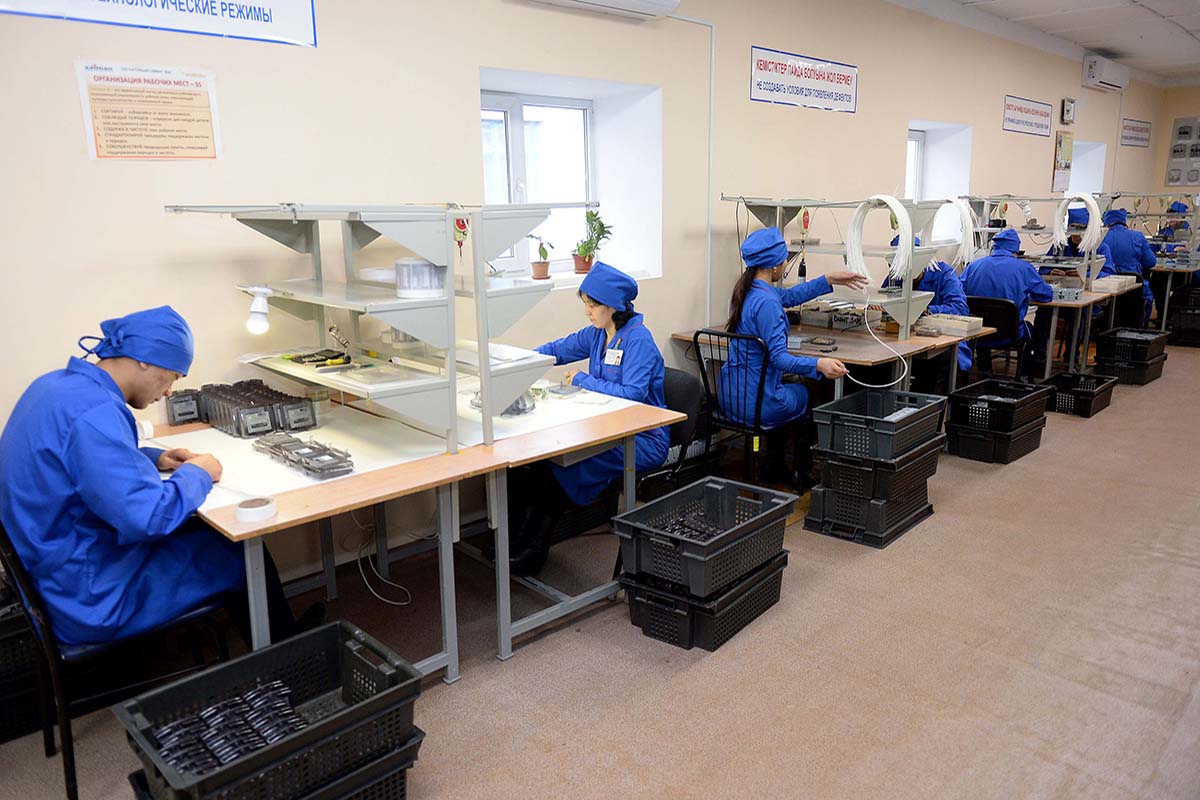
In the light industry this year, products were produced for 7.4 billion tenge, the IFO increased 2 times. The largest enterprises in the light industry are KazLegProm LLP, Semiramida LLP, Zhetysu JSC, Angelcher LLP.
In Almaty, processing of agricultural products is a priority
The city of Almaty is not an agricultural region, the share in the sectoral structure of the city's GRP is 0.0004%. On the territory of the city there are no animal husbandry, crop production enterprises (except for the greenhouse complex of BRB APK LLP), farmland, peasant farms, pastures, procurement centers, granaries. The share of people employed in agriculture is 1,053 people, which is 0.2% of the total employment.

Meanwhile, in Almaty, the processing of agricultural products is a priority, the food industry occupies 40% of the city's processing industry.
This year, the volume of the food industry amounted to 154.9 billion tenge, the share in the manufacturing industry — 32%.
The city mainly produces the following products: meat and offal, fruit and vegetable juices, dairy products, bakery products, fruits and nuts, sunflower oil, chocolate, yeast, tea and coffee, canned food, sausages, cheese, butter, etc.
As of Sep. 1, 2020, 263 actively operating food industry enterprises were registered, which produced products in January-June this year for 196.9 billion tenge, including: food products - for 154.9 billion tenge, beverages — by 42 billion tenge.

In January-August 2020, the export of processed agricultural products is $156.8 million, up 13.4% from the same period in 2019.
Exported goods: flax seeds, sunflower seeds, cattle meat, fish fillets, wheat, barley.
Major exporters in the food industry are: Rakhat LLP (confectionery), EFKO Almaty LLP (sunflower oil), Shin-Line LLP (ice cream production), Tsin-Kaz LLP (production of tomato products and polymer packaging containers), JSC Eurasian Food Corporation (fat and oil products), Butter Del LLP (fat and oil products), Bakhus LLP (beverage production), RG Brands Kazakhstan LLP (beverage production).
Basically, Kazakh products are exported to countries such as Russia, China, Uzbekistan, Kyrgyzstan and Belarus.
Under Economy of Simple Things program, 56 projects approved in Almaty
As of October 2020, 56 projects were financed and approved for the amount of 95.2 billion tenge, including:
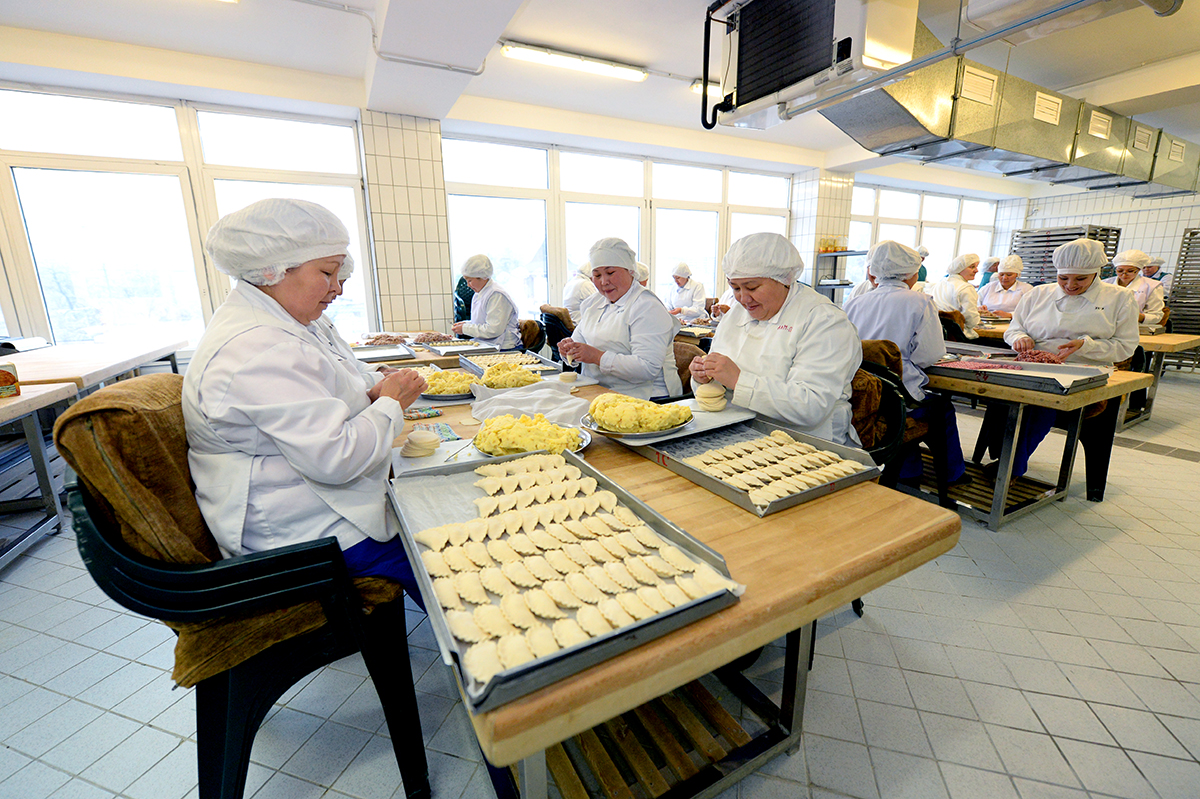
At the stage of consideration and collection of documents 12 projects for the amount of 33.2 billion tenge, including:
Within the framework of the Economy of Simple Things program, ARIBA LLP (furniture production), KAZSPO-N LLP (clothing and footwear production), KAZTRANSFORMATOR LLP (mechanical engineering), RG Brands LLP (beverage production), LLP were financed NRG Company (mechanical engineering), Aknur Kabel LLP (mechanical engineering), Nur-May Pharmacy LLP (pharmaceuticals), EFKO ALMATY LLP (food industry), AZMK LLP (mechanical engineering).
Almaty continues to strengthen city's position as a center of investment attraction
The volume of investments in January-September 2020 amounted to 608.2 billion tenge.
To date, a pool of 114 investment projects has been formed for a total of 4.5 trillion tenge, of which 76 are ongoing projects for 1.3 trillion tenge, with the creation of 16,099 jobs. 38 projects worth 3.2 trillion tenge are being worked out with the creation of 3,691 jobs.
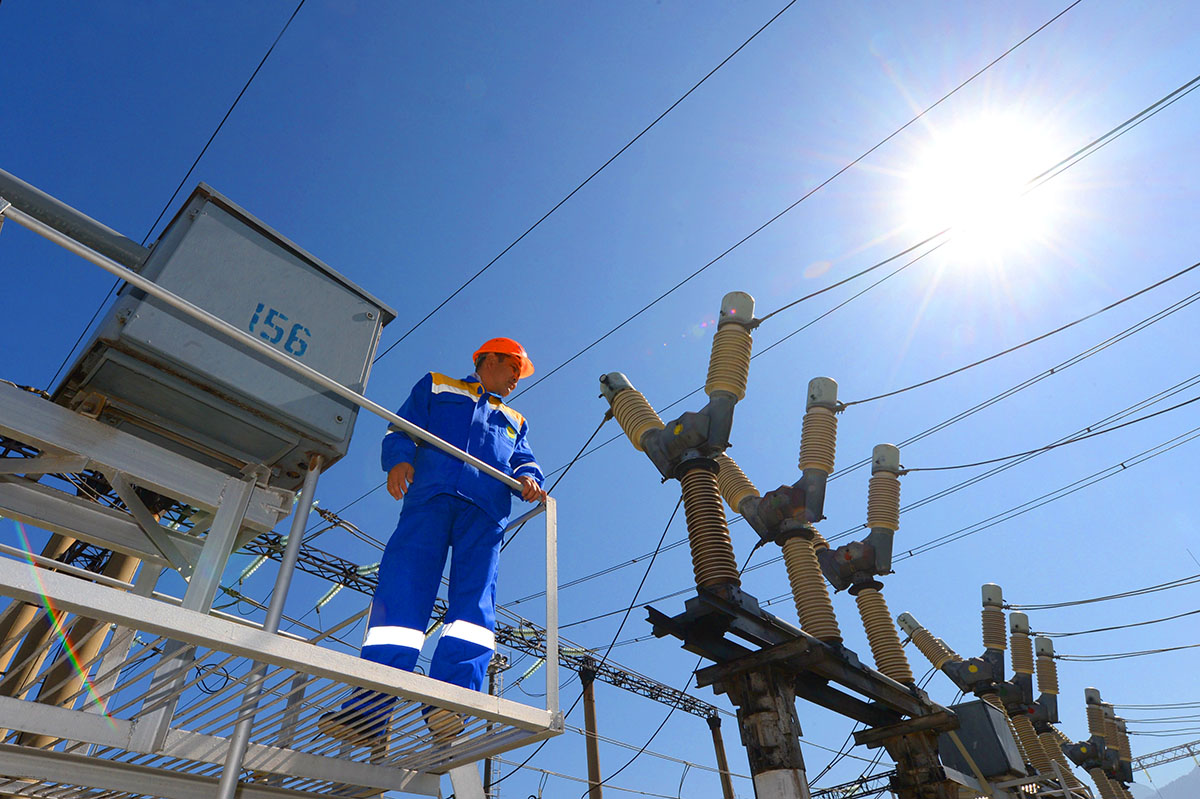
In 2020, 27 projects are put into operation in the amount of 94.6 billion tenge. The volume of planned investments for other projects is 217.7 billion tenge. In general, during the implementation of projects this year it is planned to create more than 6 thousand jobs.
For 2021-2024 it is planned to implement 87 projects worth 4.2 trillion tenge, with the creation of 13,790 jobs.
In order to assist investors, extensive support instruments are provided in the Investment House. Service support, search for partners and support of investment contracts are provided on the basis of the One Stop Shop principle.
To further improve the investment climate, increase the interest of potential investors in the implementation of new projects in the city of Almaty, work is underway in the following directions. The mechanisms for financing entrepreneurship and increasing lending to SMEs under existing republican programs have been expanded through the creation of financial institutions Almaty Finance and Almaty MFOs, where financing of business entities is carried out at a rate of 2% and 6% per annum up to 500 million tenge.
At the same time, a wide range of industries is being formed under the state programs Business Roadmap-2025, Economy of Simple Things and the regional program Almaty Business.
The Business Support Center Qolday was also created, which provides 253 types of public services on the principle of a single window and full support of investment projects.
In addition, Almaty Invest acts as the main driver of attracting investments in the implementation of anchor projects, creating favorable conditions for the development of large and medium-sized investment projects in the city. Almaty Invest organizes targeted work with investors, ranging from project identification, packaging and targeting to the commercial launch of the project and post-investment support.
In addition, on Nov. 27, 2019, the investment and innovation forum Almaty Investment Forum-2019 was held, which was attended by over 500 delegates from 20 countries, including authoritative politicians, international and Kazakhstani business leaders, heads of investment corporations, financial institutions and international organizations. During the forum, 30 memorandums worth over $2.3 billion were signed, it is planned to create at least 3 thousand jobs.

In general, thanks to the measures taken in 2019, the city of Almaty attracted 821 billion tenge of investments with an increase of 8.3%, of which the main share falls on the own funds of enterprises — 75.5%, funds of the republican and local budgets — 14.8%, borrowed funds — 9.7%.
The plan for 2020 is 900 billion tenge. At the same time, for 8 months of 2020, the volume of investments in the main one amounted to 518.5 billion tenge with an increase of 10.1%.
In 2020, 1,529 needy families provided with housing
This year, within the framework of the Nurly Zher state program, 4,994 apartments of credit and rental housing are being built, this is 290 thousand m2 with a total cost of 66.5 billion tenge. Housing will be provided for 211 people from socially vulnerable groups of the population, 350 working young people, 267 large families. It also provides for the construction of credit housing for 4,166 apartments (250 thousand m2). Compared to last year, this figure has quadrupled.

Today 26,070 citizens are registered in Almaty in need of housing. Of these, about 10 thousand are employees of budgetary organizations and more than 15 thousand are socially vulnerable segments of the population (WWII — 4, large families — 2,210, single-parent families — 7,475, families raising disabled children — 1,223, disabled people — 2,371, orphans — 1,691).
Since the beginning of the year, 1,529 families in need have been provided with housing, of which:
Within the framework of the republican program Nurly Zher, 265 apartments were distributed from the municipal housing stock of the city among the waiting lists of the local executive bodies.
Distribution by categories: WWII — 4, Orphans — 29, Large families — 122, Disabled people 1 - 2 gr. — 26, Single-parent families — 51, Pensioners by age — 14, Equated to the Second World War — 14, Families with disabled children — 5
Within the framework of the republican program Loan housing through Housing Construction Savings Bank, 360 apartments are planned. On Oct. 12, 2020, 244 families were settled.
Within the framework of the republican program Baqytty Otbasy, credit limits are distributed across the regions of Ministry of Industry and Infrastructure Development. 376 loans were allocated for the city of Almaty for 3.7 billion tenge, of which: 188 — for large families, 188 — for single-parent families, families raising children with disabilities. On Oct. 12, 2020, 279 credit loans were issued (large loans — 136, incomplete loans — 115, families raising children with disabilities — 28).
Under the city program of concessional lending, Almaty Zhastary 3.0, on Oct. 12, 2020, 741 credit loans were issued (in the field of education — 215, in the field of health care — 253, for universities and research institutes — 99, in the field of culture — 71, in the field of media — 62, in the social sphere — 21, in sports — 20).
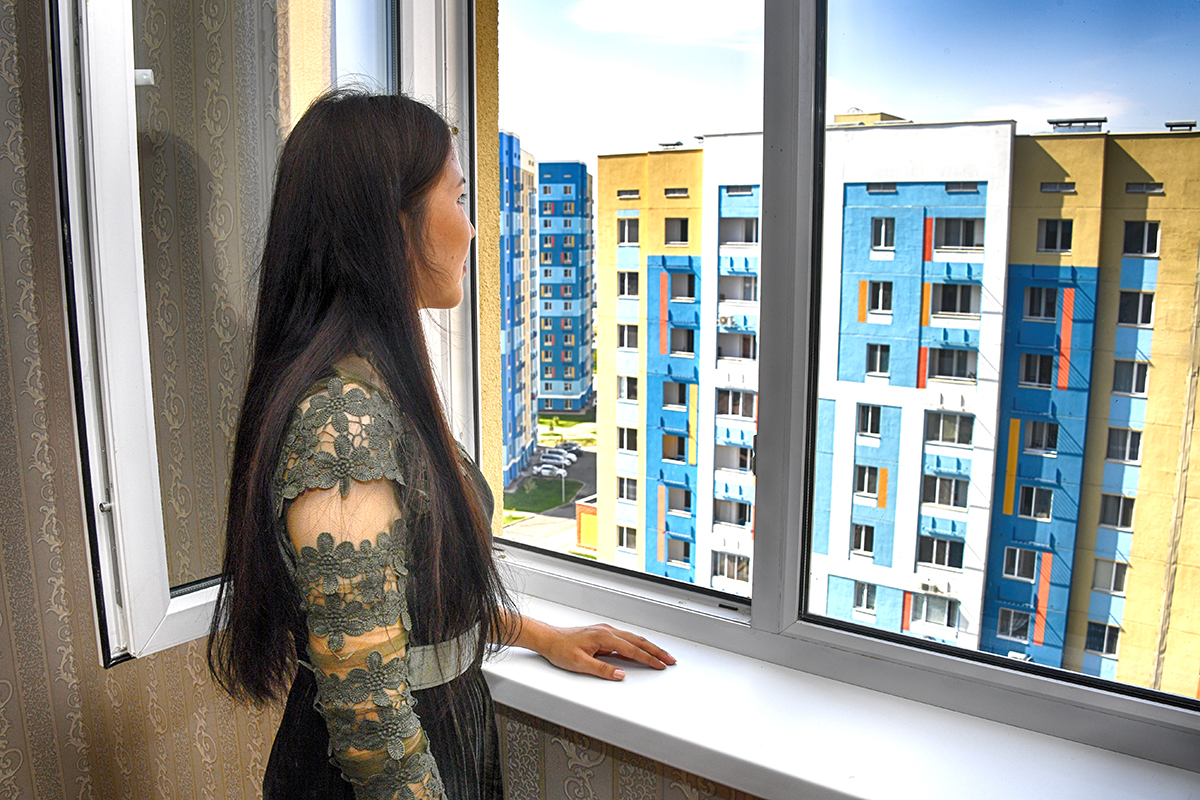
The entire process — from applying to receiving housing — is carried out in electronic format through the E-Gov portal and the corresponding Internet resources in the public domain.
By the end of 2020, it is planned to provide housing for:
Implementation under the programs 7-20-25 and Baspana Hit is assigned to the RSU National Bank of Kazakhstan.
15 billion tenge to be spent on road repairs in Almaty
The city akimat was informed that in 2020 the city is undergoing reconstruction of Almaty street - an extension of Zhandosov street from Yassaui to Ashimov (1.2 km). Demolition and full expansion are foreseen on this street. At the moment, 11 more houses have not been redeemed, lawsuits are underway. Completion is planned for 2021. Also, the bridge on the Karagaili river will be repaired by the end of the year.
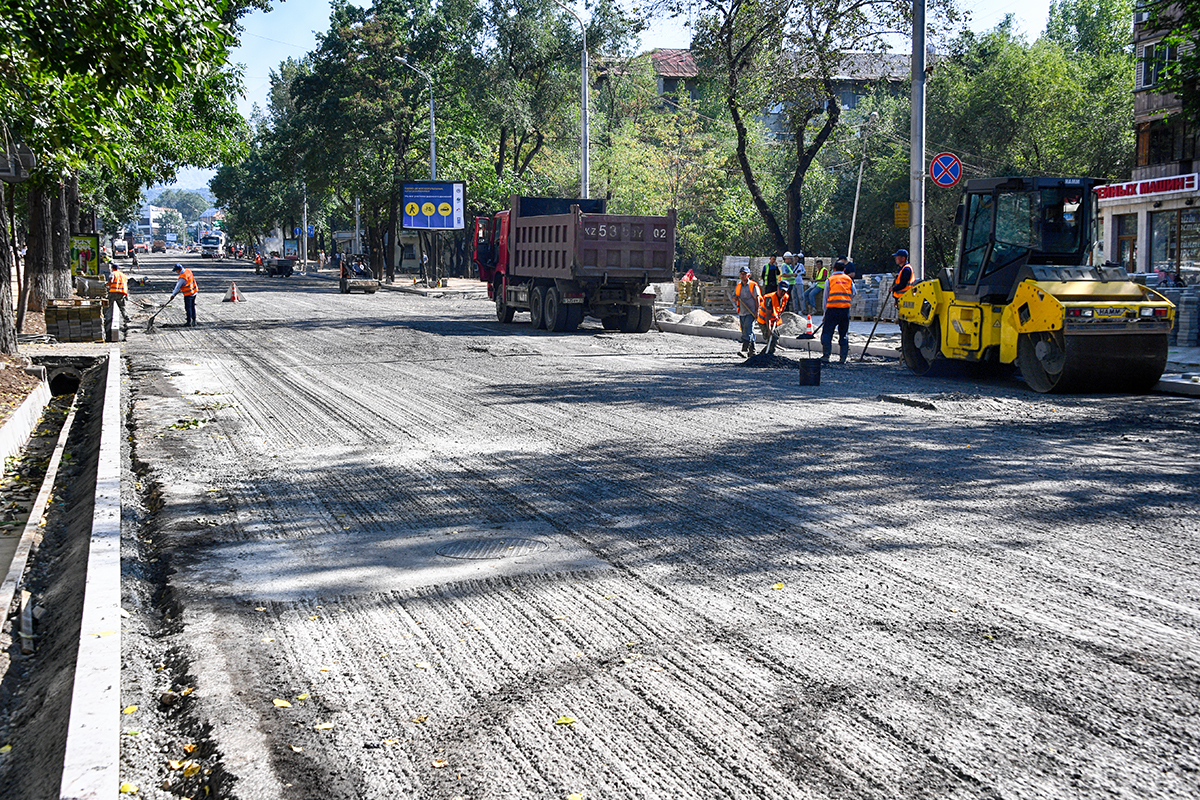
In general, this year the construction of new roads on 177 streets with a length of 47.4 km is underway in the megalopolis, of which the construction of 112 streets with a length of 18.6 km has been completed. By the end of the year, roads will appear on the remaining 65 streets with a length of 28.8 km.
In 2020, the construction of three traffic interchanges continues (Ryskulov Avenue — Emtsova Street, Seifullin Avenue — Zhansugurov Street, Bukhtarminskaya Street — Kulzhinsky Trakt), punching of Abai Avenue and Sain Street.
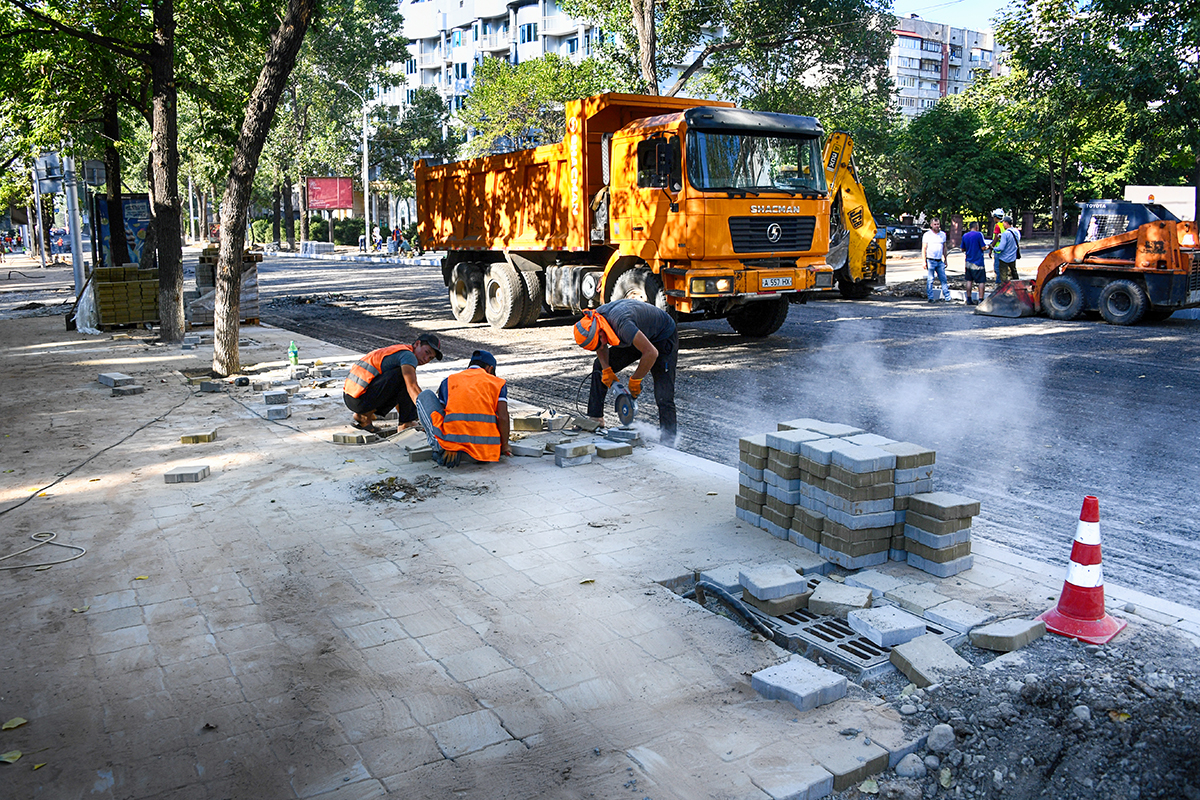
Also, work has begun on the construction of five overhead pedestrian crossings (Northern Ring Street — north of Moskvina Street, Northern Ring Street — north of Zhumabayev, Northern Ring Street — south of Burundayskaya, Mailin Street — Tukay Street, Mailin Street — south of Kapal).
In addition, it is planned to repair 283 streets with a length of 200 km, arrangement and repair of sidewalks with a length of 30 km and 80 stopping areas and pockets. 300 thousand square meters will be repaired by current repairs. m of asphalt concrete pavement on the street and road system of the city. 91 streets with a length of 62.6 km have already been put in order, as well as work on current repairs in the amount of 151 thousand square meters and the arrangement of sidewalks with a length of 19.2 km.
In addition, work is underway to develop design estimates for the construction of roads in nine micro-districts of the city of Almaty with a total length of 118 km, overhaul of roads in the Duman micro-district, punching of Tole bi street.
The construction of the second start-up complex of the second stage of the first metro line, which includes Saryarka and Dostyk stations and a 3.1 km metro line along Abai Avenue in the western direction from Altynsarin Avenue to Momyshuly Street, continues. The project will be completed at the end of 2021.

The construction of the third start-up complex has also begun, which includes running tunnels from the Dostyk station to the Kalkaman station with a length of 2.4 km from Yassaui Street to Ashimov Street and in the northern direction under Ashimov Street in the Kalkaman microdistrict. Completion is scheduled for 2023.
In Almaty, the share of satisfactory road quality in 2020 will be increased to 80% (75% in 2019).
Employment Roadmap as one of anti-crisis measures
In Almaty, about 104 billion tenge was allocated for the implementation of 226 projects under the Employment Roadmap program.
Currently, more than 19 thousand jobs have been created on projects under the Employment Roadmap, of which more than 50% are employed through employment centers, the share of unemployed youth employment is 38%.
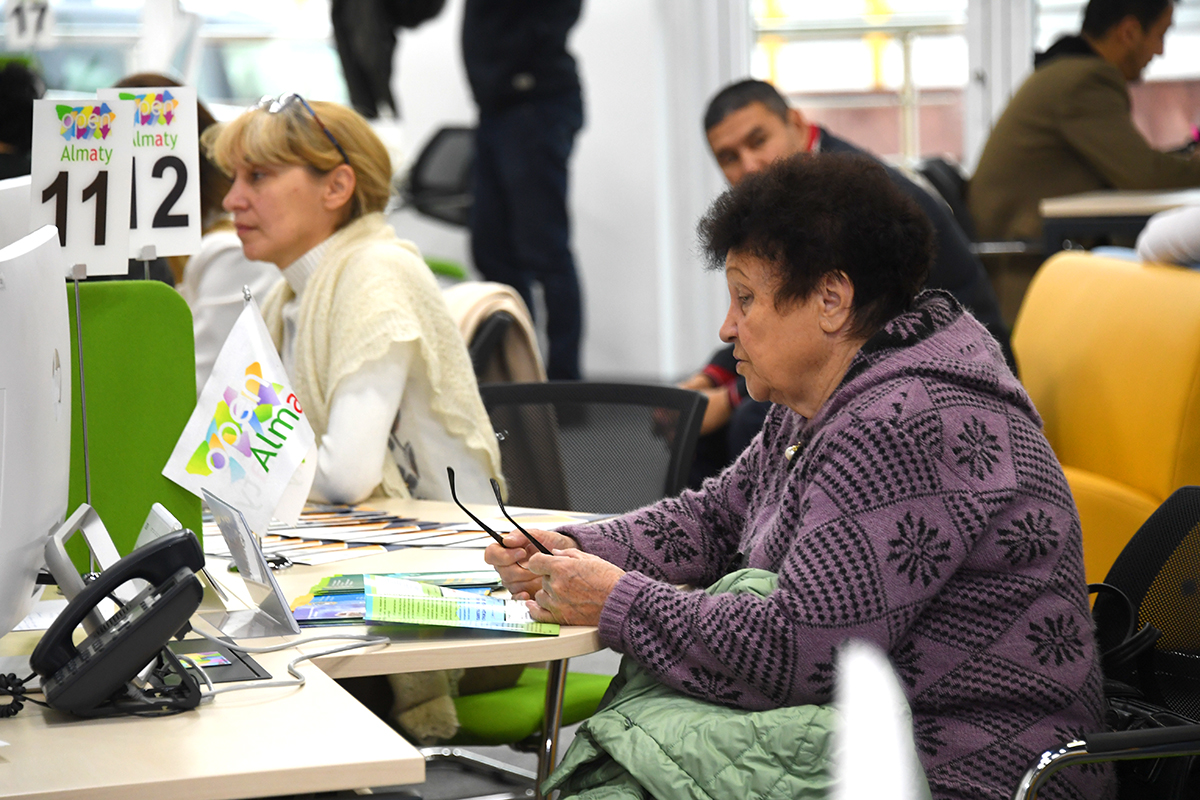
In general, within the framework of the Employment Roadmap, it is planned to create 26 thousand jobs in the city, including 13 thousand through employment centers. After the completion of infrastructure projects, it is planned to create 2 thousand permanent jobs.
Since beginning of 2020, 25.2 thousand people employed in Almaty for permanent jobs
Since the beginning of this year, about 46 thousand people have been covered by employment measures. Of these, 25.2 thousand people were employed in permanent jobs. To reduce the unemployment rate, such mechanisms are used as the creation of permanent jobs, the use of active measures to promote employment, the issuance of grants within the framework of Enbek state program started.
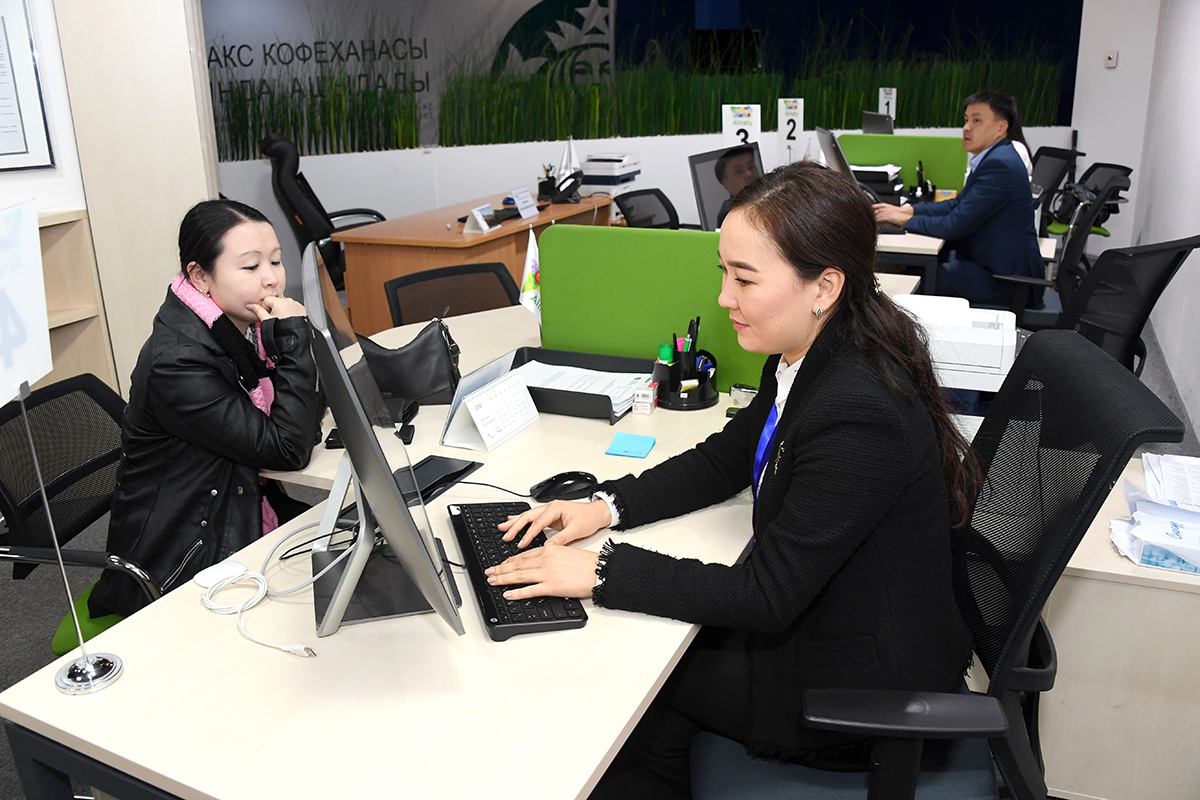
This year, 13.5 billion tenge is provided for the implementation of the Enbek program. Within the first direction, it is planned to train 2.5 thousand people. VET training began in September this year. 1,005 people were sent to short-term vocational training.
The second direction provides for the issuance of microcredits to 140 participants. Since the beginning of the year, 83 people have received microcredits totaling 1,112 million tenge.
It also provides for the issuance of 1,705 grants up to 200 MCI for the implementation of new business ideas. Today the development is 100%.
In the third direction, 17,975 people were sent to temporary jobs. For the same period in 2019, 5.9 thousand people were employed. This year, the plan for public jobs has been increased to better cover the unemployed. The original plan was 3 thousand, within the framework of anti-crisis measures, funds were allocated to create an additional 12 thousand jobs. Since the beginning of the year, more than 15 thousand people have been sent to public works.
Coverage with active employment promotion measures is carried out under the Comprehensive Employment Promotion Plan. Taking into account the application of these measures, with an increase in the unemployment rate during the period of restrictive measures, the Enbek program has shown its productivity.
Systematic work on digitalization carried out in Almaty
On behalf of the Head of State, as part of the implementation of the state program Digital Kazakhstan, systematic work on digitalization is being carried out in Almaty. In order to ensure a more comprehensive development of the direction of digital culture and to create the most optimal environment for development, the SMART ALMATY Strategy for 2020-2025 was developed.
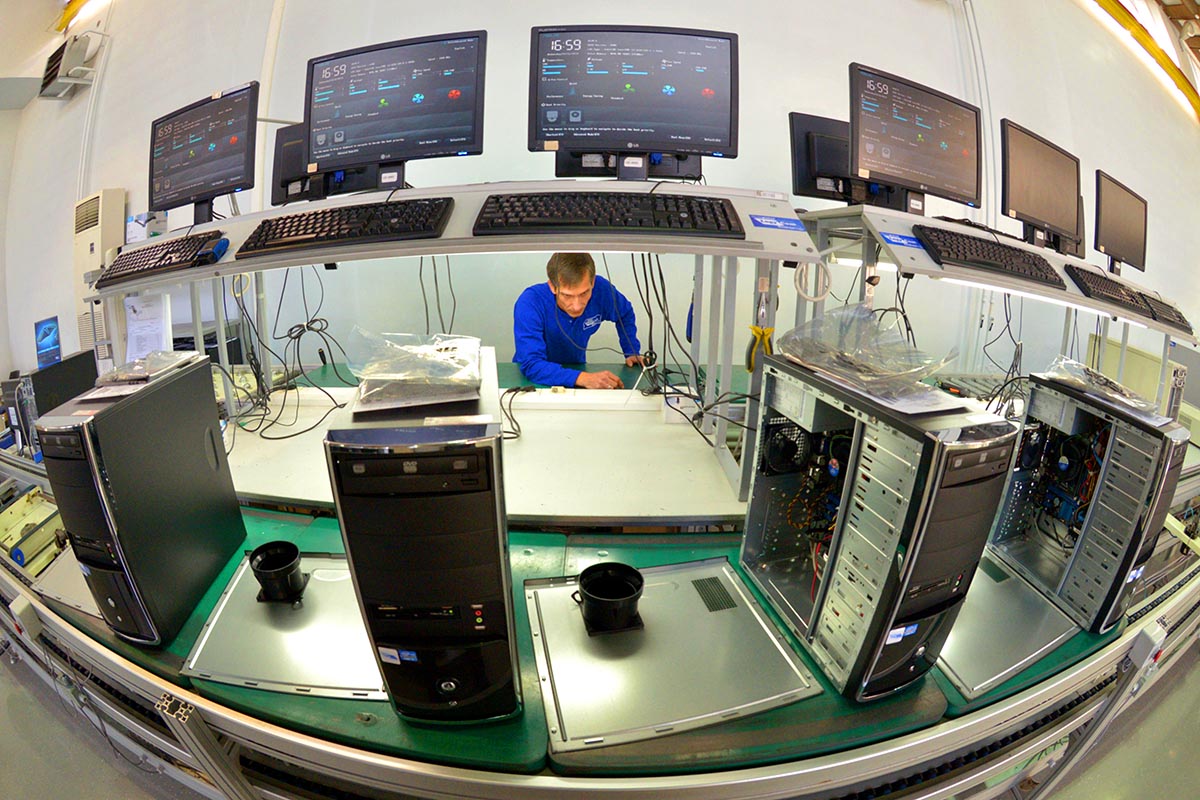
Balanced development of IT infrastructure is the most important priority for enhancing the digital culture of the city.
According to the Action Plan to protect the life and health of Almaty residents in the context of a pandemic, the Akimat of Almaty has now developed new digital administration tools:
Thus, a quarantine regime analytics system has been developed based on the data of mobile operators with the integration of data from all four mobile operators with a filter by hour and by days.
The city was divided into squares of 500x500 meters and for each square it is possible to see the number of people with a peak value in time. In addition, integration was carried out with a database on public transport routes passing through the city, and a video analytics system for entering and leaving cars. Integration with the KPSU database on urban crime analytics is also being carried out. This makes it possible to evaluate pendulum migration and points of attraction in the city.
On the basis of the ambulance system, an analytics system for the movement of ambulances was implemented, which allows analyzing calls to addresses and planning the operation of new substations.
The system of analytics of localization of health care facilities and determination of the walking distance of PHC was introduced.
Thanks to the system, it is possible, in good visualization, to determine the points where district doctors physically cannot provide a high-quality bypass of patients, and already on the basis of this data to understand where there is a direct need to build new clinics and hospitals.
Tracking of CT images is carried out through a centralized system of radiological images based on the FORUS DATA solution.
Each hospital has access to the system, which will monitor the patient's condition and provide more tailored medical diagnostic services.
Additionally, as part of the development of digitalization in the city of Almaty, Almaty Laboratory of Artificial Intelligence LLP, a Cerebra pilot project was launched for early diagnosis of ischemic stroke.
Phased implementation of program for accelerated construction of educational facilities continues in Almaty
The city of Almaty is a large educational center and is represented by the most extensive network of educational institutions in the republic.

In the field of preschool education and training, 871 preschool organizations operate in the city, covering more than 62 thousand children from 1 to 6 years old.
On the basis of 387 preschool organizations, a state educational order for 17,818 places has been placed.
In order to ensure further coverage of children with preschool education and training, from the beginning of 2020, 4 state kindergartens for 670 children were built and put into operation, including with the involvement of a private investor, JSC Bi Group — 1 kindergarten for 150 children.
By the end of 2020, a kindergarten for 120 places will be opened in the Bostandyk district on the territory of gymnasium No. 21.
As part of the implementation of the Employment Roadmap program, the construction of 3 more kindergartens for 520 places has begun.
In addition, 46 private preschool organizations for 1 278 places have already been opened this year out of the planned 76 private preschool organizations for 2,820 places.
As part of quarantine measures, duty groups were organized in preschool organizations from June 1, 2020. At present, 653 kindergartens have 2,833 on-duty groups covering more than 34 thousand children.
There are 270 secondary education organizations in the city of Almaty, where 287,878 students study.
On the eve of the new academic year, about 22 thousand students from socially vulnerable families received 30 thousand tenge from the fund for general education for the purchase of clothing and school supplies.
As part of the organized work on the transition to a distance learning format, from Sep. 1, 2020, 80 thousand pieces of computer equipment were purchased, 30 thousand students were provided with SIM cards for accessing the Internet.
At present, there are 946 duty groups in 137 general education schools covering 12,159 students in grades 1-4.
In all organizations of secondary education, a sanitary and epidemiological regime is provided.
To improve the efficiency of distance learning in the city, the Sphere educational platform has been developed, which provides for information security, free use of the Internet and other opportunities. More than 2,500 lessons are held daily through this platform.
The city continues the phased implementation of the Program for the Accelerated Construction of Educational Facilities until 2022, specially designed to reduce the shortage of student places in educational institutions.
In 2020, the construction of 2 public schools in Auezov and Turksib districts for 1,800 places, 5 annexes to existing schools for 2,017 places was completed, the construction of 4 more annexes for 1,925 places is underway. Two private schools for 1,390 places were put into operation. By the end of 2020, it is also planned to open 2 private schools with 850 places.
In addition, within the framework of the Employment Roadmap program, construction of another 9 schools for 13,200 places and 13 outbuildings to existing schools for 6,550 places will begin.
In order to improve the quality of additional education in the city, the construction of a new building for children's music school No. 5 has been completed this year, and from 2021 it is planned to modernize the existing Palace of Schoolchildren and 10 more out-of-school institutions.
In 2021, the construction of 2 multidisciplinary Centers for innovative creativity (Palaces of schoolchildren) will begin in Alatau and Nauryzbaysk regions.
There are 83 organizations of technical and vocational education in the city with more than 66 thousand students.
The state educational order is placed in 45 colleges with coverage of over 32 thousand students.
In the current academic year, the admission plan of the state educational order amounted to 8,719 places.
Based on the Enbek Program for Development of Productive Employment and Mass Entrepreneurship for the 2020-2021 academic year, 2,500 places have been allocated for 20 public and 7 private colleges in 28 specialties and 63 working qualifications in demand in the labor market.
Students under this Program are provided with one-time hot meals, scholarships, travel (2 times a year, 2 MCI).
In 2019, the proportion of college graduates who studied under the state order, employed and employed in the first year after graduation is 98.4%.
In 2020, within the framework of the republican project Zhas Maman, 2.5 billion tenge was allocated from the republican budget to strengthen the material and technical base of 8 colleges and an additional 129.3 million tenge from the local budget.
In Almaty, systematic work is underway to support the teaching community. This year, more than 32 thousand teachers work in educational institutions, more than 500 of whom are young specialists.
The payment of one-time financial assistance to young teachers who are starting their career in educational organizations of the city is carried out annually.
In Almaty there is also a program of concessional lending — Almaty Zhastary 3.0, under which 187 young teachers are currently provided with housing.
In addition, on the eve of the professional holiday of educators in 2020, the results of the city competitions "Teacher of the city of Almaty" and "Special grant of the Akim of the city of Almaty" were announced for the first time, and the winning teachers were awarded valuable prizes and cash grants.
Stay updated about the events of the Prime minister and the Government of Kazakhstan - subscribe to the official Telegram channel
Subscribe